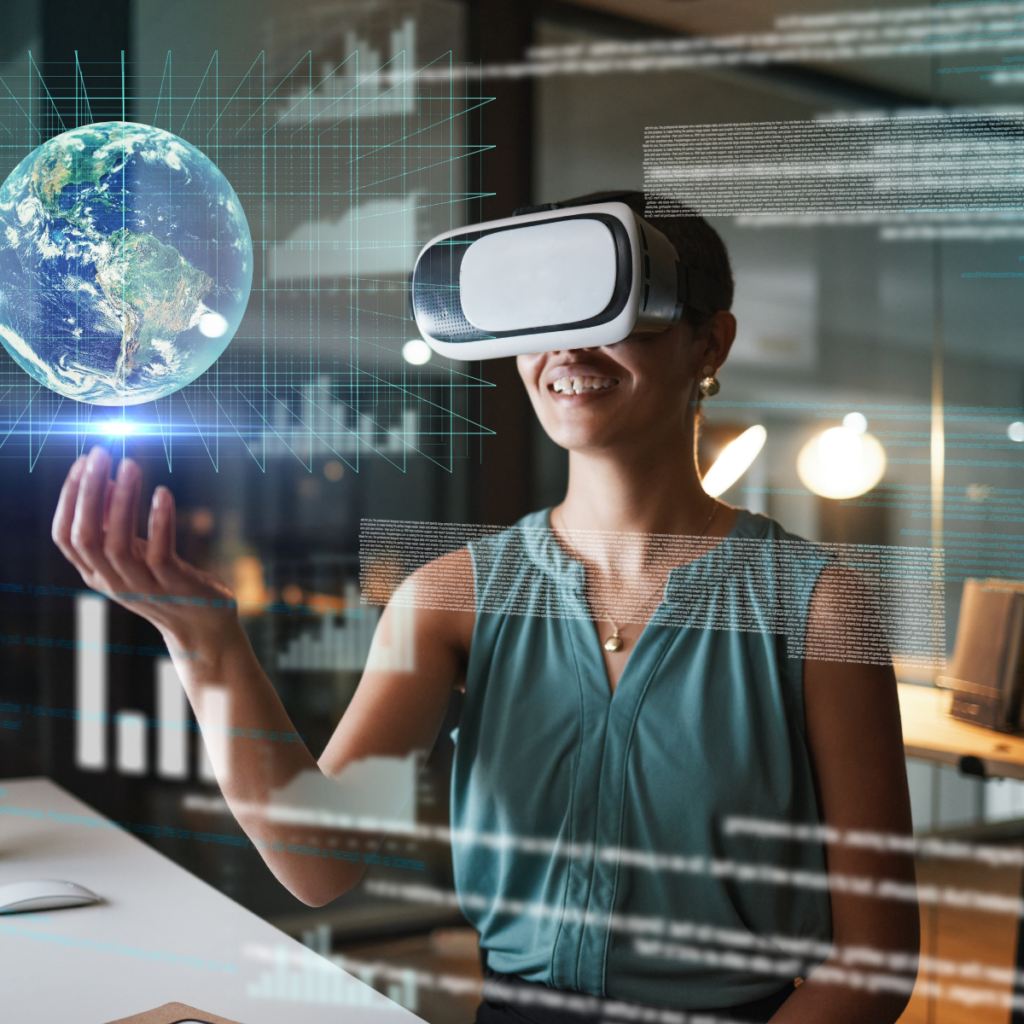
In recent years, Artificial Intelligence (AI) has rapidly emerged as a game-changer, revolutionizing industries across the globe. From automating mundane tasks to enabling groundbreaking innovations, AI is shaping the future in profound ways. Let’s explore how AI is transforming industries and what this means for the future.
1. AI in Healthcare: Revolutionizing Patient Care
The healthcare industry is one of the biggest beneficiaries of AI. Technologies like machine learning and natural language processing are enabling more accurate diagnoses, personalized treatment plans, and streamlined hospital operations.
- Early Detection of Diseases: AI-powered tools can detect diseases like cancer and heart conditions at their earliest stages, improving survival rates.
- Telemedicine: Virtual consultations supported by AI improve accessibility to healthcare in remote areas.
- Drug Discovery: AI algorithms significantly reduce the time and cost associated with developing new medications, expediting treatments for critical illnesses.
Future Outlook: With advancements in AI, we can expect more predictive healthcare systems, robotic surgeries, and wearable devices that monitor health in real time.
2. AI in Manufacturing: Driving Efficiency and Innovation
Manufacturing has been at the forefront of AI adoption, using robotics and automation to enhance productivity.
- Smart Factories: AI-driven systems enable predictive maintenance, reducing downtime and operational costs.
- Quality Control: Machine vision systems ensure precision by detecting defects more accurately than the human eye.
- Supply Chain Optimization: AI predicts demand trends, optimizing inventory and logistics.
Future Outlook: The future of manufacturing includes fully automated factories, collaborative robots (cobots), and AI-powered sustainability practices.
3. AI in Retail: Enhancing Customer Experiences
AI is reshaping the retail industry by offering personalized shopping experiences and optimizing operations.
- Personalization: AI algorithms analyze customer behavior to recommend products, boosting sales and customer satisfaction.
- Inventory Management: Predictive analytics ensure that stock levels match consumer demand, minimizing waste.
- Chatbots: AI-powered chatbots provide 24/7 customer support, resolving queries instantly.
Future Outlook: The integration of AI with augmented reality (AR) will transform online and in-store shopping, offering immersive experiences.
4. AI in Finance: Ensuring Accuracy and Security
The finance sector has embraced AI to improve decision-making, enhance security, and automate tasks.
- Fraud Detection: AI systems identify unusual patterns, preventing fraudulent activities.
- Algorithmic Trading: AI-powered trading bots execute trades based on market trends, maximizing returns.
- Customer Service: Virtual assistants help customers manage accounts, pay bills, and understand financial products.
Future Outlook: Expect AI to play a greater role in regulatory compliance, blockchain integration, and wealth management.
5. AI in Education: Making Learning Accessible
AI is redefining education by offering personalized learning experiences and breaking down barriers to access.
- Adaptive Learning Platforms: AI tailors educational content to match individual student needs.
- Virtual Tutors: Students can access 24/7 assistance, making learning continuous and flexible.
- Language Translation: AI tools break language barriers, enabling global access to educational resources.
Future Outlook: The use of AI in immersive learning environments, powered by virtual reality (VR) and augmented reality (AR), will revolutionize how we educate future generations.
6. AI in Transportation: Paving the Way for Smart Mobility
The transportation industry is undergoing significant changes due to AI-driven innovations.
- Autonomous Vehicles: Self-driving cars are becoming a reality, reducing human errors and improving safety.
- Traffic Management: AI systems optimize traffic flow, reducing congestion in urban areas.
- Logistics: Predictive analytics improve delivery routes and reduce fuel consumption.
Future Outlook: Autonomous public transport, drone deliveries, and AI-enabled infrastructure will define the future of mobility.
7. AI in Marketing: Redefining Customer Engagement
Marketing has been transformed by AI’s ability to analyze consumer data and predict trends.
- Targeted Advertising: AI ensures ads reach the right audience, increasing campaign ROI.
- Content Creation: AI tools generate personalized content, saving time and resources.
- Sentiment Analysis: Marketers can gauge customer emotions and tailor strategies accordingly.
Future Outlook: The future of AI in marketing lies in hyper-personalized experiences and real-time campaign optimization.
Challenges and Ethical Considerations
While AI promises immense benefits, it also raises challenges:
- Job Displacement: Automation may lead to workforce redundancies, necessitating reskilling initiatives.
- Bias and Fairness: AI systems must be carefully designed to avoid perpetuating biases.
- Data Privacy: As AI relies on vast amounts of data, ensuring privacy and security remains critical.
Addressing these challenges will require collaboration between governments, organizations, and AI experts to establish ethical guidelines and sustainable practices.
Conclusion: The Future of AI
AI is no longer just a buzzword; it’s a transformative force reshaping industries and redefining possibilities. As we look to the future, embracing AI responsibly will unlock its full potential, driving innovation, efficiency, and inclusivity. Businesses and individuals that adapt to this technological shift will lead the way in this AI-driven era.

